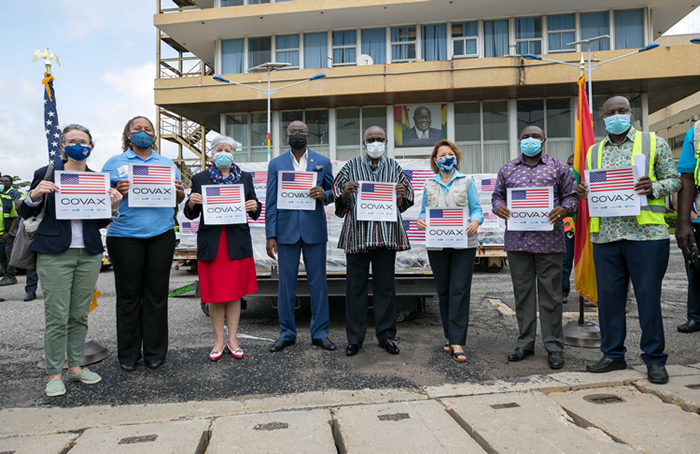
The United States has shipped more than 560,000 doses of the Pfizer-BioNTech vaccine to the West African nation of Ghana, the White House told VOA on Wednesday.
“As the president has said, America will be the arsenal of vaccines in our fight against COVID-19,” a White House official told VOA. “We are proud to be able to deliver these safe and effective vaccines to the people of Ghana.”
The White House told VOA the 565,110 doses of the vaccine shipped on Tuesday.
They will be distributed through COVAX, a global initiative founded to ensure equitable access to COVID-19 vaccines.
These new doses come from the half-billion doses secured by President Joe Biden’s administration over the summer, the White House said.
Ghana, a coastal nation of 31 million people, has reported nearly 157,000 cases of the virus, according to the World Health Organization. That has resulted in 1,395 deaths. It has administered more than 9.7 million vaccine doses.
The nation appears to have recently emerged from a fourth wave of infections. The last wave, which peaked in January, prompted the U.S. Centers for Disease Control and Prevention to issue a Level 3 travel health notice over the high level of infection in the country.
Health advocates welcomed the donations but have long questioned whether the world’s richest nation is doing enough.
“In our view, there’s much more work to do,” said Ava Alkon, a U.S.-based policy adviser for aid group Doctors Without Borders. “We certainly appreciate the efforts that the U.S. government has made thus far. But at this point, in low-income countries, less than 12% of people have gotten even one dose at this point. And as we’re rolling out booster doses in the U.S., we feel that there should be a steady flow of redistributed doses headed towards low- and middle-income countries at this point.”
And she said with the U.S. now distributing free tests and planning to distribute free masks, they should step up their auxiliary efforts, as well.
“We think the U.S. should step in to help fill these gaps wherever they can, wherever they exist, in collaboration with the WHO’s Access to COVID Tools Accelerator, and should also be working to empower countries to procure and produce the tools they need themselves,” Alkon said.
“So, for example, we’d like to see PCR test manufacturers working together with the accelerator to make sure low- and middle- income countries can get the volumes of diagnostic tests they need, and place and price the products within those countries’ reach. And we’d like to see the U.S. government facilitate that process.”
Last month, Ghana’s president announced that the nation will soon launch construction on a manufacturing facility for COVID-19 vaccines, as well as for tuberculosis and malaria vaccines. President Nana Akufo-Addo said the facility is a collaborative project between Senegal, Rwanda and a German biotechnology company.
Although the nation does not mandate vaccination, it is available to all people 15 years and older, including pregnant women, Ghanaian health authorities have said.
Source: voanews.com























